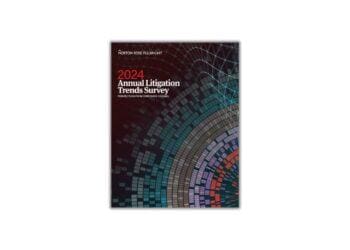This article was republished with permission from Michael Volkov’s blog, Corruption, Crime & Compliance.
Warren Buffet, the Oracle of Omaha, understands the importance of corporate culture and adhering to a code of ethics. He has been quoted as saying:
“Lose money and I will forgive you. Lose even a shred of reputation and I will be ruthless. … Wealth can always be recreated, but reputation takes a lifetime to build and often only a moment to destroy.”
Buffet’s implicit message is unmistakable – culture, reputation and profitability go hand in hand. The point appears very obvious, yet so many corporate leaders fail to understand this basic, but essential point.
Over the last few years, we have seen glaring examples of poor ethical cultures – Volkswagen, General Motors, VimpelCom, Valeant, just to name a few.
Trust and integrity are the two most important ethical traits in our corporate world. When surveyed, employees, middle managers and executives typically cite these two concepts as important to their overall view of the company, their job and their commitment to compliance with the company’s code of conduct.
Building a company’s reputation and ensuring that trust and integrity exist requires the board, the CEO and senior executives to set the tone and communicate a consistent message. It is easy, with the benefit of hindsight, to list and identify all the problems that led to the results in the above-listed corporate scandals. It is far more difficult to set out a plan to instill an ethical culture and then achieve the end result.
Warren Buffet recognizes the importance of this task. His achievement is even more incredible when you realize that he has purchased many companies through the years and integrated them into the lean operational headquarters of Berkshire Hathaway.
A commitment to culture requires time and attention. When senior executives fail to understand the importance of ethics and compliance or balk at resources needed to carry out this function, a company will suffer. There will always be naysayers in every organization, but when they dictate corporate decisions and actions, there is a real danger of harm to the company.
Researchers have attempted to quantify the reputational value of a company. Sometimes the concept gets wrapped into corporate goodwill, but there is more to measuring the value of corporate trust and integrity than an accounting of goodwill. Goodwill is calculated by taking the company’s market value and subtracting its book value. Another measure has been suggested as subtracting asset value from market value.
During the last 15 years, researchers have estimated that the trust premium for ethical companies ranges from half of stock value to three-quarters of stock value. That may be a little high, but it is conservative to estimate that a company’s reputational value ranges from 20 to 30 percent.
Given these obvious benefits to corporate operations, many board members, CEOs and senior executives find it hard to embrace trust and integrity, as it is difficult to decide how to instill and enhance these concepts. Sometimes the answers to a difficult question can be obvious, and if corporate leaders would just attend to the issue, they would find that practical strategies are readily available and can be adopted with minimal investment and resources.
A return on investment calculation underscores the low-cost, high-return nature of an investment in corporate culture. CCOs have to make corporate culture a top priority. It is not hard to do, but it requires communication, education and commitment.



 Michael Volkov is the CEO of The Volkov Law Group LLC, where he provides compliance, internal investigation and white collar defense services. He can be reached at
Michael Volkov is the CEO of The Volkov Law Group LLC, where he provides compliance, internal investigation and white collar defense services. He can be reached at 





